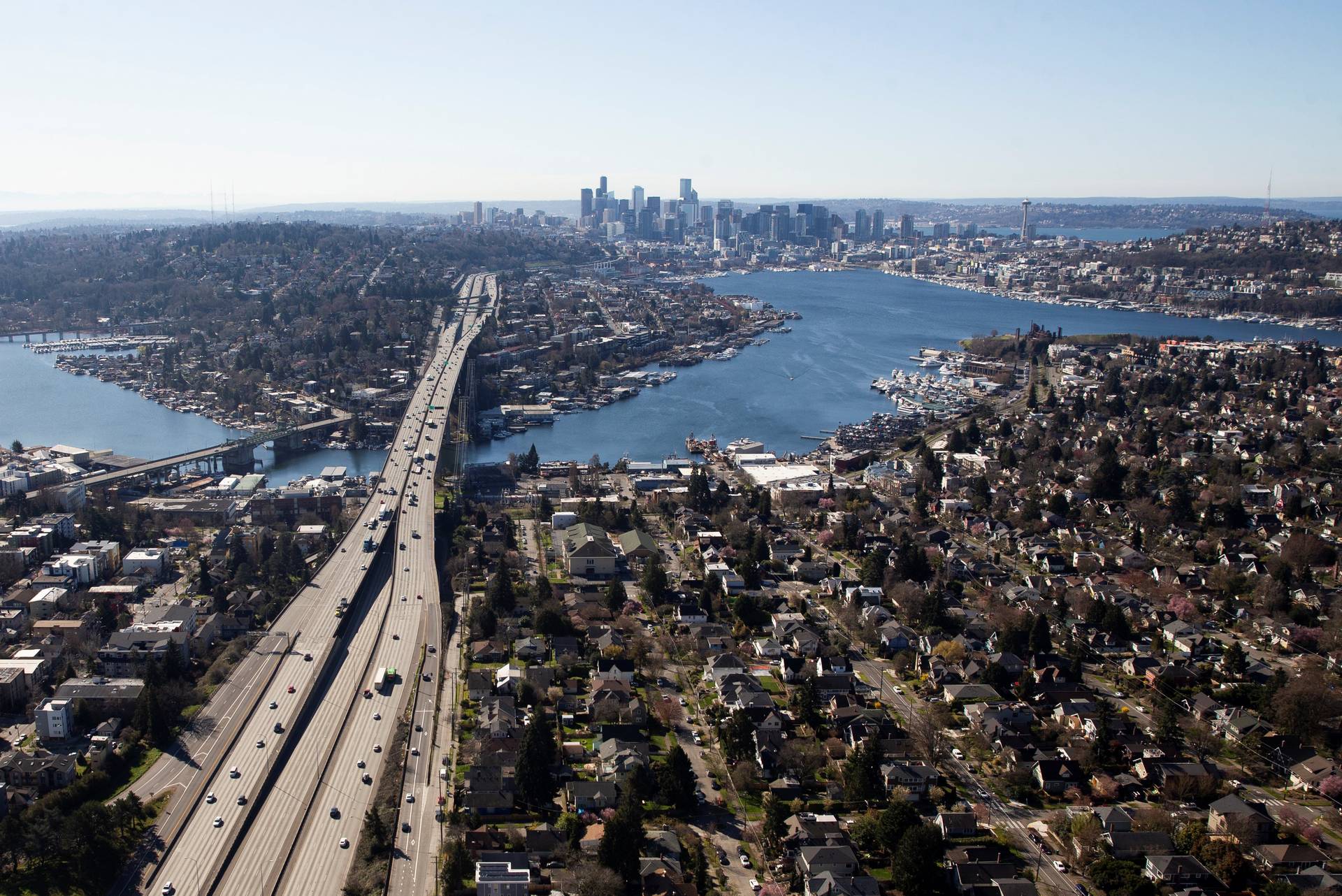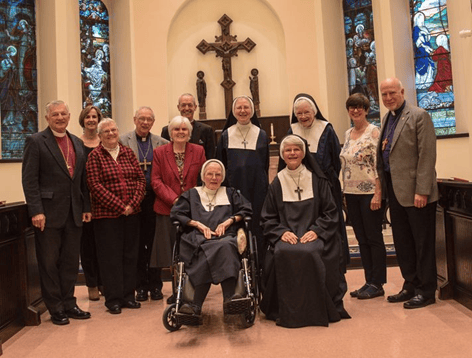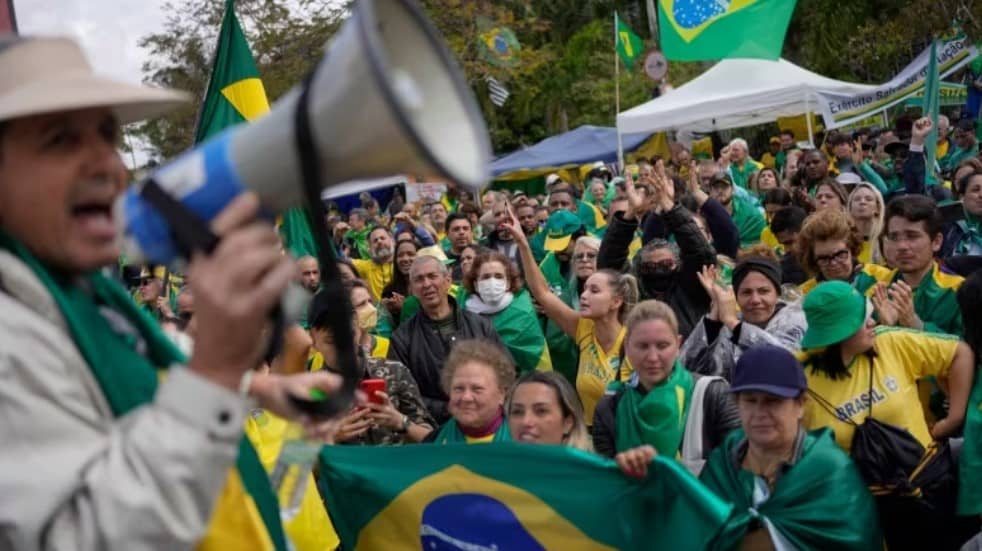Following an alt-right rally in Charlottesville, Virginia, that ended in tragedy after one person died and 19 were injured when a white supremacist deliberately drove a car into a crowd, Catholic bishops across the U.S. joined politicians and other religious and civic leaders in denouncing racism, white supremacy, and neo-Nazism, and calling for unity.
The United States Conference of Catholic Bishops’ President, Cardinal Daniel DiNardo of Galveston-Houston, released two statements. On Saturday, he condemned “the violence and hatred” of the day. On Sunday, together with Bishop Frank Dewane of Venice, Florida, he released one that was more direct, stating, “We stand against the evil of racism, white supremacy and neo-nazism.”
Many bishops and dioceses released statements and tweets with similar sentiments. While President Donald Trump was criticized for not immediately placing the blame on white supremacists and neo-Nazis, leaders of the U.S. Church were not shy about calling out those groups by name.
The question, however, for many black Catholics and others, is, what comes next?
Father Bruce Wilkinson, a recently retired priest in the Archdiocese of Atlanta, tweeted in reply to Crux’s story about the DiNardo statement, that while such declarations are nice, the question of what these bishops are doing in their own dioceses to combat racism remains.
Wilkinson was ordained in 1981 and, at that time, was the only black priest serving in Atlanta. In 1984, then-Archbishop Thomas Donnellan asked him to form an office of black Catholics, so he’s been working in that area most of his career.
From 1992-2016, Wilkinson was the pastor at Most Blessed Sacrament in southwest Atlanta, a mostly black parish.

To begin with, Wilkinson said he wasn’t surprised by what transpired in Charlottesville, and that these episodes are “nothing new.”
That tracks with the perspective of other leading African-American Catholics, including Father Bryan Massingale of Fordham University, an expert on African-American theological ethics, who spoke to the “Crux of the Matter,” Crux’s weekly radio show on the Catholic Channel, Sirius XM 129, on Monday.
“I was dismayed, disgusted, but not surprised,” Massingale said. “It’s been building in America.”
Wilkinson said his real frustration is with the lack of follow-up.
“After the event passes, we ‘go back to normal’ – no discussion about how we change this, or what we need to do,” he said.
“People say, ‘Let’s do something next,’ but there’s never a next!” Wilkinson said.
As painful as witnessing events like Charlottesville are, his frustration is with the response. Every time something happens, statements are made, he said, but there is no subsequent action. He says the “words are eloquent,” but he asks, “How many more rallies like that have to occur before bishops say we need to do something in my diocese?”
Part of Wilkinson’s concern lies with the composition of the hierarchy of the U.S. bishops’ conference, as well as most dioceses throughout the country.
“I look at my diocese, and except for one or two positions, none of the other positions of importance are filled by people of color, or by women for that matter,” he said.
There are three million African-American Catholics, and he says that although African-Americans may be put in charge of an office of multiculturalism in a diocese, it’s not enough. (As an aside, he says that the term “multiculturalism” doesn’t only include minorities but also whites, but it seems to be the one place they are excluded.)
Of course, Wilkinson speaks as a priest of Atlanta, where the current archbishop, Wilton Gregory, is probably the most visible African-American prelate in America. In fact, he said, the problem is hardly confined to Atlanta.
He said you merely have to travel to dioceses and parishes across the country to see the lack of black and brown office-holders, and this lack of diversity, he said, is endemic. There are “no principals of our schools who are people of color, no people serving as heads of departments,” he said.
After a series of police shootings in 2016 once again highlighted racial disparities in America, the U.S. bishops set up a task force to make recommendations, led by Wilkinson’s own local bishop, Gregory.
Yet when he asked if he has faith in the helpfulness of that effort, Wilkinson was unequivocal: “No. No, I don’t,” he said.
Instead of a task force or another document, Wilkinson would like to see dioceses and parishes sit down and have a serious discussion about race in the U.S. He believes it has to begin with real and candid talk about the state of race in the country, and in the community of each parish and diocese.
“Let’s sit down and let’s have a discussion…a serious dialogue within the diocese with people,” he said.
Talking may seem an obvious first step, but Wilkinson said it’s actually a very difficult thing to do, which is probably why it’s not happening.
“It is scary for people to face their feelings, and I know that, when people have to face their sinfulness … By avoiding it, it’s easier to pretend it doesn’t exist,” he said.
Wilkinson suggests one key point for Catholic leadership is, “How do we as Christians help our nation face the sinfulness that is here?”
He would love to see the leadership, particularly people who are in positions of authority or positions of responsibility, sit down and talk about what is actually happening in the diocese, parishes, and surrounding community.
“In Atlanta, we are unfortunately re-segregating ourselves and there doesn’t seem to be much concern,” he said. “Very rarely do you see churches that are integrated and it’s never discussed.”
In some ways, Christian leaders in other churches, such as the famous Rev. Dr. William J. Barber, can go into different churches and talk and rally people more easily than Catholics. Wilkinson says there’s no Catholic equivalent to Barber, because a priest or lay person has to be invited in somewhere to speak, and unfortunately, he said, nobody right now is making invitations to speak on the topic of race and justice.
For his part, Massingale told Crux that “radical evils call for radical responses.” It remains to be seen what that response might be, although Wilkinson has a suggestion for a place to begin: The seminary, where future priests are trained.
However, he doesn’t hold out a lot of hope for that actually happening.
“There’s not a political will in the church to make this a priority in the seminary,” he said, pointing to his own experience.
“It was a taboo thing to bring up in my seminary training,” he said. However, laughing at the memory, he added, “then again, I was the only black man in my seminary, so that didn’t always help!”

















